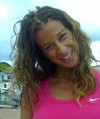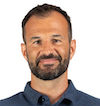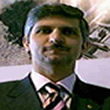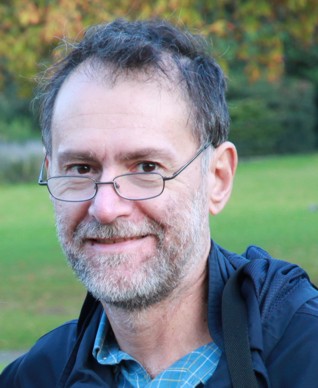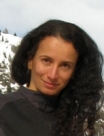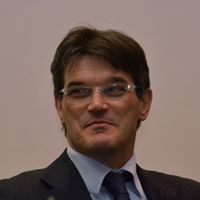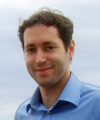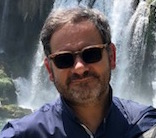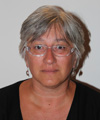Studying at the University of Verona
Here you can find information on the organisational aspects of the Programme, lecture timetables, learning activities and useful contact details for your time at the University, from enrolment to graduation.
Academic calendar
The academic calendar shows the deadlines and scheduled events that are relevant to students, teaching and technical-administrative staff of the University. Public holidays and University closures are also indicated. The academic year normally begins on 1 October each year and ends on 30 September of the following year.
Course calendar
The Academic Calendar sets out the degree programme lecture and exam timetables, as well as the relevant university closure dates..
| Period | From | To |
|---|---|---|
| I semestre | Oct 3, 2016 | Jan 27, 2017 |
| II semestre | Mar 1, 2017 | Jun 2, 2017 |
| Session | From | To |
|---|---|---|
| Sessione straordinaria 15/16 - Sessione invernale 16/17 | Jan 30, 2017 | Feb 28, 2017 |
| Sessione estiva | Jun 5, 2017 | Jul 7, 2017 |
| Sessione autunnale | Aug 28, 2017 | Sep 29, 2017 |
| Sessione straordinaria 16/17 - Sessione invernale 17/18 | Jan 29, 2018 | Feb 28, 2018 |
| Session | From | To |
|---|---|---|
| Sessione straordinaria 15/16 - Sessione invernale 16/17 | Mar 20, 2017 | Apr 7, 2017 |
| Sessione estiva | Jul 10, 2017 | Jul 28, 2017 |
| Sessione autunnale | Oct 16, 2017 | Oct 3, 2017 |
| Sessione straordinaria 16/17 - Sessione invernale 17/18 | Mar 19, 2018 | Apr 6, 2018 |
Exam calendar
Exam dates and rounds are managed by the relevant Exercise Science Teaching and Student Services Unit.
To view all the exam sessions available, please use the Exam dashboard on ESSE3.
If you forgot your login details or have problems logging in, please contact the relevant IT HelpDesk, or check the login details recovery web page.
Should you have any doubts or questions, please check the Enrollment FAQs
Academic staff
 valentina.biino@univr.it
valentina.biino@univr.it
 paola.cesari@univr.it
paola.cesari@univr.it
 paolo.dellaquila@univr.it
paolo.dellaquila@univr.it
 fabio.sartori@univr.it
fabio.sartori@univr.it
Study Plan
The Study Plan includes all modules, teaching and learning activities that each student will need to undertake during their time at the University.
Please select your Study Plan based on your enrollment year.
1° Year
| Modules | Credits | TAF | SSD |
|---|
2° Year activated in the A.Y. 2017/2018
| Modules | Credits | TAF | SSD |
|---|
| Modules | Credits | TAF | SSD |
|---|
| Modules | Credits | TAF | SSD |
|---|
Legend | Type of training activity (TTA)
TAF (Type of Educational Activity) All courses and activities are classified into different types of educational activities, indicated by a letter.
Sport and plays for school-age kids (2017/2018)
Teaching code
4S001086
Teacher
Coordinator
Credits
3
Language
Italian
Scientific Disciplinary Sector (SSD)
M-EDF/02 - SPORT SCIENCES AND METHODOLOGY
Period
II semestre dal Mar 5, 2018 al Jun 1, 2018.
Learning outcomes
The purpose of the course is to create, through the monitoring of children’s play activities, a corresponding progression of play activities to be performed by school-aged children. It will be important to make a distinction between games for children aged 5-7 years; aged 8-9 years and 10-11 years and adopt a teaching method that may use play in a motor literacy setting and also in the sports training. The teaching method shall take into consideration the typical qualities of children of that age.
At the end of the course, students will be able to propose games following a clear evolution, sequence and purpose. They will have learned to enforce the corresponding psychopedagogical, cognitive, organic-muscular criteria of school-aged children; they will know the physical, motor, cognitive, emotional and social characteristics of toddlers and older kids.
They will show they have understood that play and player are two inseparable entities and therefore the teaching may not only be based on the instrumental concept of play per se, but of play and play evolution. They will be able to identify such disciplinary objectives that are subordinate to the play actions and proposed games. They will be able to place them in an adequate school setting. They will know the value of play as teaching tool and the effect it can have on the child motor, physic, cognitive and social abilities.
Program
The course programme is divided into two teaching modules: Theoretical teaching module Practical training module THEORY MODULES (16 HOURS) 1. MODULE: the motor, organic-muscular, cognitive and emotional characteristics of school-aged children. - Children aged 5/6 years. Children over 7 years-old. Children aged 10 years. - Play in motor education. The elements of play at school: structuring of space and time of play. - The moments of play development. Infant play and evolved play. - Game classification according to the rules: performance, easily organized games; regulated games. - Game classification according to participation: individual games, couple games, team group games. 2. MODULE: gross motor skills and the acquisition of basic motor skills ( locomotor and not locomotor) through play. - Game classification according to social dynamics: one vs one, one vs all, all vs all, two vs one, two vs two, cooperative games, in team games, team games. - Game classification according to: physical efficiency (MVPA); cognitive and performance functions; coordination skills development. - Multilateral and multiform training. - Multitasking and bilateralism principle. 3. MODULE: motor literacy and sport game proposals - Activation game; playful action; high motivating final game - Differences between playful activities and games - Play and creativity - Game organization: time and operating context. Changes and variability in practice. - Play of reference and pitch invasion games - Game: facilitating, stabilizing, complicating - Safe games; orderly games; destructured games - Teaching methods for the preparation and presentation of games - Arbitrage 4. MODULE: The mini section of individual and team sports. - Coded rules games - Game reduction - The principle of specificity of teaching. - Teaching sport practice through play: learning by playing. - The use of adequate tools. - Motivation in competitive mini-sports - Stress capacity in infant age. - Strength and speed preparation. PRATICAL TRAINING MODULES (15 ore) - 1 MODULE: Games for the development of special coordination skills: sensorial-perceptive games, lateral and dominance games, rhythm games, orienteering games, space-time structured games, games to learn the body scheme, balance, imitation and expression games. - I “Key games” . Performance games. Warm-up games, middle phase games and high motivation final games. - Games without the use of apparatuses - Games with apparatuses without the use of balls. - 2. MODULE games in the school age - Games for children aged from 6 to 8 years-old Individual games; Group games; Team games; Regulated games. One vs one; one vs all. Relay races. Games with balls for children aged from 6 to 8 years-old - Games for children aged from 8 to 10 years-old Individual games: collaborative games; team games; regulated games. Competitions. Tournaments. Games with balls for children aged from 8 to 10 years-old. - 3. MODULE Mini sport: the principle of specificity of teaching. - Teaching methods: peer teaching. Cooperative learning. Simulation. - Game reduction - Game simplification and facilitation - Agility and reactivity in a playful format. Composed movements- basic movements- non-specific composed movements- sport-specific movements. Plyometrics and jumps in a playful format. Recommended books “Manuale di scienze motorie e sportive” V. Biino 2006 Hoepli, Milan “Motricità e gioco” E. Zocca, V. Biino 2009 Hoepli, Milan Gallahue D.L. e Donnelly F.C., 2003. Developmental physical education for all children. Human Kinetics, Champaign, IL USA. Caterina Pesce, Rosalba Marchetti, Anna Motta, Mario Bellucci, 2015. Joy of moving. Calzetti & Mariucci Editore.
| Author | Title | Publishing house | Year | ISBN | Notes |
|---|---|---|---|---|---|
| Pesce C, Marchetti R,, Motta A., Bellucci M. | Joy of moving | Calzetti-Mariucci editore | 2015 | ||
| Biino Valentina | "Manuale di Scienze motorie e sportive" | HOEPLI | 2006 |
Examination Methods
Written exam: five open questions, five minutes each. After each answer the student is required to underline the answer (ability to synthesize information).
Practical exam: an essay with a high level of application in practice (skills).
Type D and Type F activities
Modules not yet included
Career prospects
Module/Programme news
News for students
There you will find information, resources and services useful during your time at the University (Student’s exam record, your study plan on ESSE3, Distance Learning courses, university email account, office forms, administrative procedures, etc.). You can log into MyUnivr with your GIA login details: only in this way will you be able to receive notification of all the notices from your teachers and your secretariat via email and soon also via the Univr app.
Graduation
List of theses and work experience proposals
Student mentoring
Gestione carriere
Orario lezioni
L’orario delle lezioni comprende
Lezioni Frontali in aula
Esercitazioni e laboratori
Questi ultimi sono organizzati per gruppi dai singoli docenti responsabili dei corsi.
L'orario è pubblicato nel portale studenti
Modalità di frequenza
Vige l'obbligo di frequenza al 70% come specificato nel Regolamento di ogni singolo corso di laurea e laurea magistrale:
Ulteriori informazioni:
L'accesso alle pagine Moodle dei singoli insegnamenti è vincolato alla compilazione del piano di studi.
App Univr Lezioni, FAQ e guida all'utilizzo sono disponibili al seguente link: orario-lezioni-e-modalita-di-frequenza
Comunicati: Avvisi per studenti
Internships
Internships are aimed at enabling students to gain direct knowledge of the world of work and to acquire specific professional skills.
Internships are carried out under the responsibility of an individual lecturer, and can be carried out in professional firms, public administration bodies and companies recognised by the University of Verona.
Any CFU credits gained by doing internships will be recognised and recorded by the University in accordance with the relevant University regulations in force (Regolamento d’Ateneo per il riconoscimento dei crediti maturati negli stage universitari).
For further information on internships, please go to: https://www.univr.it/it/i-nostri-servizi/stage-e-tirocini.
Linguistic training CLA
Certificazione medica di idoneità
Riferimenti normativi principali: DM 24 aprile 2013 art. 3, GU 169 del 20-07-2013; Decreto del Ministro della Salute dell’8 agosto 2014 e s.m.i.
Per frequentare le attività dei corsi di Laurea e Laurea magistrale di Scienze motorie è obbligatorio presentare la certificazione medica di idoneità fisica per attività sportiva non agonistica. La certificazione è necessaria per accedere alle attività pratiche-esercitative e al tirocinio.
à COME OTTENERE LA CERTIFICAZIONE
La certificazione - riportante l’indicazione che è stato eseguito l’ECG a riposo - può essere rilasciata da:
- centri o servizi di medicina dello sport delle ASL (ora ATS) e delle aziende ospedaliere
- istituti della Federazione Medico Sportiva Italiana
- centri pubblici o privati autorizzati:
- dai medici di medicina generale di libera scelta, relativamente ai propri assistiti;
- dal medico specialista in medicina dello sport.
L’ECG a riposo deve essere ripetuto annualmente.
E’ ammesso anche il certificato medico di idoneità alla pratica sportiva agonistica, per chi ne fosse già in possesso.
à SCADENZA PER LA PRESENTAZIONE
La certificazione medica deve essere prodotta al momento dell'immatricolazione e, comunque, entro l’inizio delle lezioni alla Segreteria Corsi di Studio Scienze motorie. Spetta agli studenti rinnovarla annualmente alla scadenza - per ogni anno di iscrizione in corso o fuori corso. La Segreteria effettuerà periodicamente dei controlli sulla consegna dei certificati.
NOTA: Studenti immatricolati a seguito di SUBENTRO/RIPESCAGGIO/TRASFERIMENTO IN INGRESSO: se non è possibile rispettare la scadenza di presentazione del certificato sopra indicata, avvisare la Segreteria Corsi di Studio Scienze, scrivendo all’indirizzo certmed.scienzemotorie@ateneo.univr.it
à MODALITA’ DI CONSEGNA
La certificazione va inviata alla Segreteria Corsi di Studio Scienze motorie dalla propria e-mail istituzionale nome.cognome@studenti.univr.it all’indirizzo certmed.scienzemotorie@ateneo.univr.it.
Student login and resources
Competenze linguistiche
DOPO LA LAUREA TRIENNALE
Per proseguire gli studi in uno dei corsi di Laurea Magistrale dell'ambito delle Scienze motorie è necessario possedere competenze linguistiche almeno di livello B1 informatizzato (o superiore) specificamente di lingua inglese, poichè i corsi di studio di livello superiore prevedono nel proprio piano didattico la presenza di insegnamenti o di moduli impartiti dai docenti direttamente in inglese.
Inoltre, tali competenze costituiscono requisito di accesso indispensabile per poter partecipare alla prova di ìngresso oppure per iscriversi ad una laurea magistrale.
La conoscenza di altre lingue diverse dall'Inglese NON può venire riconosciuta come "requisito" utile per l'accesso ai corsi di laurea magistrale. Tuttavia, la certificazione posseduta potrà essere valutata da un'apposita Commissione di docenti ed eventualmente riconosciuta in termini di crediti (CFU) a scelta dello studente, presentando domanda al momento dell'immatricolazione.
Si invita a leggere con attenzione i bandi di concorso annuali per l'ammissione ai corsi di laurea magistrali per maggiori informazioni - consultare nel sito del corso di studio anche la sezione "Iscriversi".

 +39 045 842 5117
+39 045 842 5117


